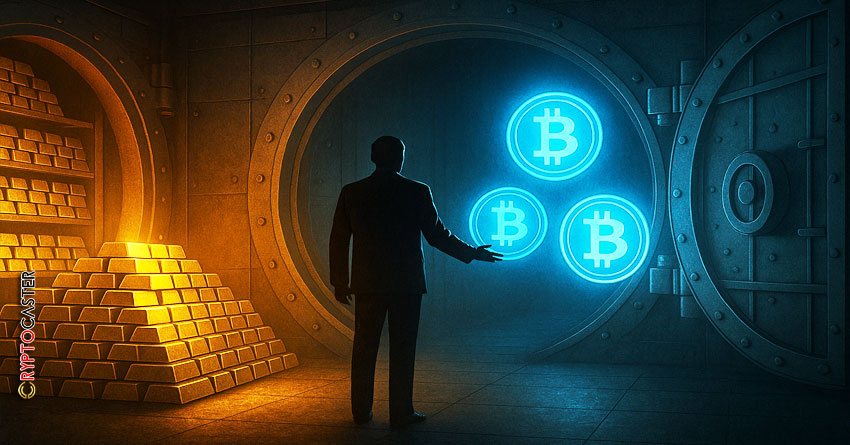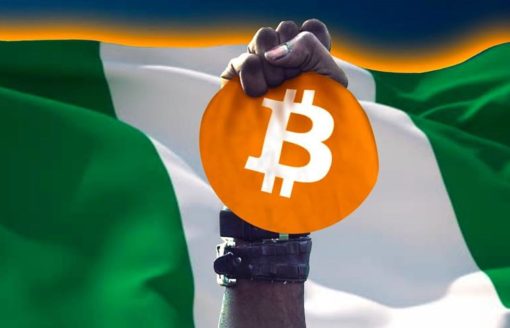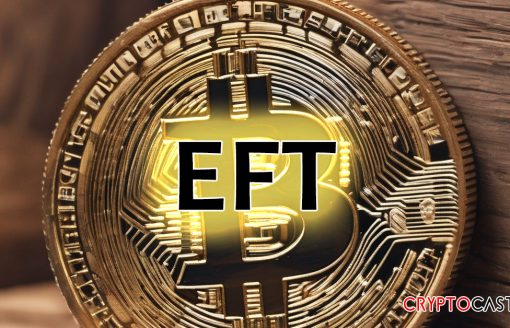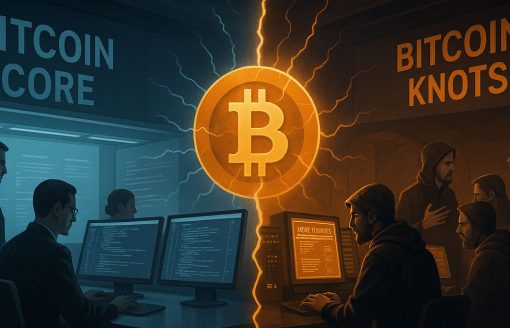By CryptoCaster Editorial Team | September 26, 2025
For most of modern history, nations have measured financial stability by the depth of their reserves: gold bars stacked in vaults, foreign exchange currencies, and government bonds. These assets function as the ultimate backstop for economic crises, sovereign credit, and monetary credibility.
Stay in the know on crypto by frequently visiting Crypto News Today
But now, a provocative question has surfaced: does Bitcoin need a government reserve? In other words, should nations hold Bitcoin the way they once hoarded gold — as a strategic safeguard against inflation, sanctions, or monetary collapse?
The idea sounds radical, even contradictory. After all, Bitcoin was designed to exist outside state control. Yet as central banks experiment with digital currencies, sovereign wealth funds buy crypto, and retail investors treat Bitcoin as “digital gold,” the question no longer belongs only to the fringes.
CryptoCaster Quick Check:
A Look Back: Gold and the Reserve Tradition
To understand Bitcoin’s potential as a reserve asset, it helps to revisit gold’s historical role. For centuries, gold provided a universal benchmark of value, trusted across borders. Under the Bretton Woods system (1944–1971), the U.S. dollar was pegged to gold, and other currencies were pegged to the dollar. This system tethered global finance to a scarce, tangible resource.
In 1971, President Richard Nixon severed the dollar’s link to gold, ushering in the fiat currency era. Yet even today, central banks collectively hold over 35,000 metric tons of gold, viewing it as the ultimate hedge in uncertain times.
Bitcoin enthusiasts argue their asset is the 21st-century heir to gold: scarce, portable, and resistant to inflation. But can it play that same stabilizing role at the national level?
The Case For a Bitcoin Reserve
1. Scarcity and Predictability
Bitcoin’s supply is capped at 21 million coins, mathematically locked in by code. Unlike fiat currencies, which central banks can print endlessly, Bitcoin offers guaranteed scarcity. For inflation-wary governments, that scarcity is alluring.
2. Diversification of Reserves
Traditional reserves include U.S. dollars, euros, yen, and gold. Yet overreliance on these assets leaves nations vulnerable to currency swings or geopolitical shifts. Adding Bitcoin could diversify holdings with an asset class not directly tied to another nation’s policy.
3. Geopolitical Hedge
In an era where sanctions are weaponized, Bitcoin offers unique resilience. Because transactions move on decentralized rails, reserves held in Bitcoin could, in theory, be mobilized outside of Western-controlled financial systems like SWIFT. For nations like Russia, Iran, or even mid-tier economies seeking independence, Bitcoin represents a potential shield.
4. El Salvador’s Precedent
El Salvador’s bold 2021 move to adopt Bitcoin as legal tender — and to accumulate it as part of its national reserves — has served as a real-world experiment. While controversial, the policy has drawn attention from other resource-rich nations in Africa and Latin America.
5. Institutional Validation
With Wall Street giants like BlackRock, Fidelity, and Grayscale building Bitcoin funds, the notion of Bitcoin as a legitimate reserve asset gains credibility. If it’s good enough for trillion-dollar asset managers, why not central banks?
The Case Against
1. Volatility
Bitcoin remains notoriously volatile. A reserve asset that can swing 20% in a week is dangerous for governments that depend on reserves to stabilize currencies during crises.
2. Liquidity Risk
While Bitcoin markets are deepening, they remain small compared to bond and forex markets. In a panic, could a government offload billions in Bitcoin without triggering a price crash?
3. Contradicting Bitcoin’s Ethos
Bitcoin was built as a stateless, borderless money. If governments begin hoarding it, some argue the asset risks being co-opted — blurring its original mission.
4. Custody and Security Concerns
Holding Bitcoin securely is no small feat. Governments would need to master cold storage, multi-signature wallets, and cyber defense against state-level hackers. Losing reserves to a breach could be catastrophic.
5. Regulatory and Political Pushback
Major powers like the U.S. and EU may resist the idea of Bitcoin reserves, seeing them as a challenge to their monetary influence. International backlash could outweigh the benefits for early adopters.
Scenarios: What If Governments Tried?
BRICS+ Reserve Basket
The BRICS bloc (Brazil, Russia, India, China, South Africa, plus new members) has openly discussed alternatives to the dollar. Including Bitcoin as a small slice of a new reserve basket would be symbolically powerful, signaling independence from U.S. monetary dominance.
U.S. Reluctance
For the Federal Reserve, the incentives are weaker. As issuer of the world’s reserve currency, the U.S. has little reason to validate a competitor. Yet if others begin adopting Bitcoin, U.S. policymakers could find themselves forced to hold it defensively.
African & Latin American Experimentation
Resource-rich but currency-fragile states may be the most likely early adopters. Imagine Nigeria, Ghana, or Argentina holding Bitcoin reserves to reduce dependency on IMF loans and dollar inflows.
Game Theory Dynamics
Once one significant economy adds Bitcoin to reserves, others could follow quickly to avoid being left behind — a dynamic similar to Cold War arms races, but in financial form.
A Philosophical Dilemma
At its heart, the question exposes a paradox:
- If governments hold Bitcoin, does that legitimize its role as digital gold?
- Or does it corrupt the very purpose of Bitcoin, designed as a people’s money beyond government reach?
Some argue that government accumulation would be the ultimate validation of Bitcoin’s success. Others see it as the beginning of co-optation — a slow absorption of Bitcoin into the very institutions it was meant to disrupt.
Conclusion
Does Bitcoin need a government reserve? The answer depends less on Bitcoin itself and more on the evolution of global politics. In a fragmented world of sanctions, inflation, and digital disruption, the idea of Bitcoin reserves is no longer fantasy.
Yet for now, the risks — volatility, security, and political backlash — outweigh the benefits for most states. The more likely outcome is gradual experimentation by mid-tier economies and blocs like BRICS+, with Bitcoin serving as a supplement rather than a core reserve asset.
But history has a way of moving fast. Just as no one predicted in 1944 that the gold standard would end within a generation, few today can confidently say where Bitcoin’s arc will land.
If a government does make the leap, it may spark a domino effect, reshaping the global financial order. Until then, the question remains less about “if” and more about “when.”
If this article brought you clarity, insight, or value—support the work that made it possible.
At CryptoCaster, we report on Web3, crypto markets, and institutional finance with no billionaire owners, no shareholders, and no hidden agenda. While mainstream media bends toward Elon Musk, BlackRock, and JPMorgan narratives, we stay focused on what matters: truth, transparency, and the public interest.
We don’t just cover the headlines—we investigate the power structures behind them. From FTX and Ripple to the quiet push for CBDCs, we bring fearless reporting that isn’t filtered by corporate interests.
CryptoCaster is 100% paywall-free. Always has been. To keep it that way, we depend on readers like you.
If you believe independent crypto journalism matters, please contribute—starting at just $1 in Bitcoin or Ether. Wallet addresses are below.
Your support keeps us free, bold, and accountable to no one but you.
Thank you,
Kristin Steinbeck
Editor, CryptoCaster
Support CryptoCaster: The Unfolding of Money
At CryptoCaster.world, we’re dedicated to bold journalism, sharp insights, and fearless commentary across blockchain, Web3, and crypto markets. Your **Bitcoin contributions** help us stay independent and continue delivering signal over noise.
🚨 CryptoCaster does not offer investment advice. Always DYOR—volatility is real, and risk tolerance matters.
Support our mission. Contribute BTC today.
🔗 Bitcoin Address:
3NM7AAdxxaJ7jUhZ2nyfgcheWkrquvCzRm
Thank you for backing our journalistic lens as we chronicle the Unfolding of Money — a saga still being written in real time.![]()
CRYPTOCASTER HEATMAP








